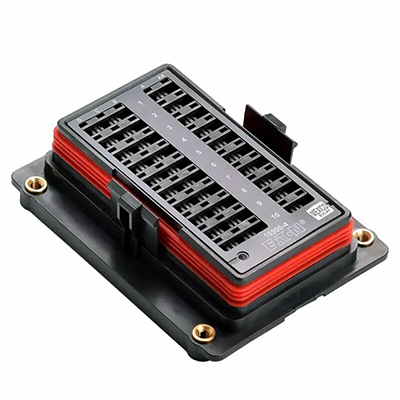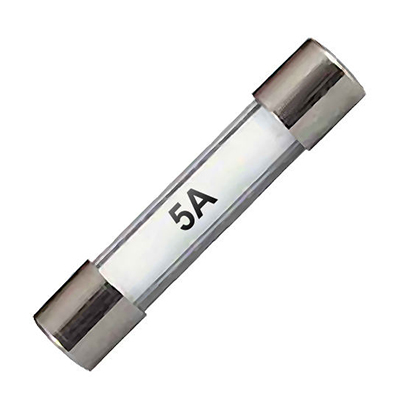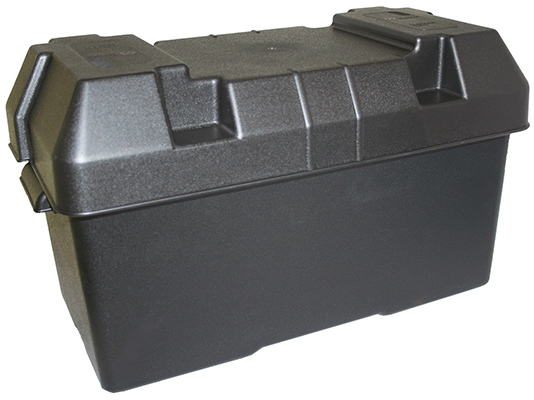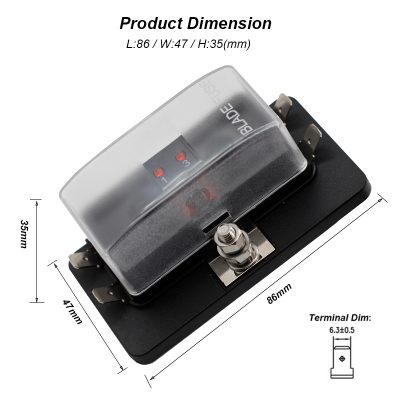The Role of Fuse Boxes in Protecting Electrical Systems of Motorhomes and Recreational Vehicles from Overloads and Short Circuits
News 2025-10-31
Fuse boxes serve as critical protectors in the electrical setups of motorhomes and recreational vehicles (RVs), acting as the first barrier against potential hazards like overloads and short circuits. These components house fuses that melt and break the circuit when excessive current flows, preventing damage to wiring, appliances, and the vehicle itself. In the mobile environment of RVs, where electrical demands vary from powering lights and refrigeration to entertainment systems, fuse boxes ensure reliable operation and enhance overall safety during travel and camping adventures. Their integration helps maintain energy efficiency and reduces the risk of fires, making them indispensable for modern RV enthusiasts.

Application Scenarios
In motorhomes and RVs, fuse boxes are applied across diverse electrical circuits to address specific needs. For instance, they protect lighting systems, including exterior headlights and interior LEDs, by isolating faults that could arise from voltage spikes. In kitchen areas, fuse boxes safeguard appliances like refrigerators and microwaves, ensuring they handle power fluctuations without failure. Additionally, they are vital for auxiliary systems such as solar panels and inverters, where they prevent overcurrent from variable energy sources, supporting off-grid living and enhancing the dependability of RV electrical infrastructures in remote locations.
Performance Advantages
Fuse boxes deliver key benefits that boost the efficiency and safety of RV electrical systems. They respond swiftly to faults, with fuses interrupting current flow in milliseconds to minimize damage and avoid costly repairs. Their compact, modular design fits seamlessly into tight spaces, allowing easy upgrades or expansions as RV needs evolve. Constructed from durable materials, fuse boxes withstand vibrations, moisture, and temperature changes common in mobile settings, ensuring long-term reliability. This resilience not only extends the life of electrical components but also optimizes power usage, contributing to better battery performance and reduced maintenance for RV owners.
Frequently Asked Questions
1. What is a fuse box and how does it operate?
A fuse box contains fuses that break electrical circuits by melting when current exceeds safe levels, protecting against overloads and shorts.
2. Why are fuse boxes necessary in recreational vehicles?
They provide essential protection in confined spaces, preventing electrical fires and component damage from common faults during travel.
3. How can I maintain or replace fuses in an RV fuse box?
Regularly inspect for blown fuses and replace them with the correct amperage rating; consult manuals or professionals for safe handling.


